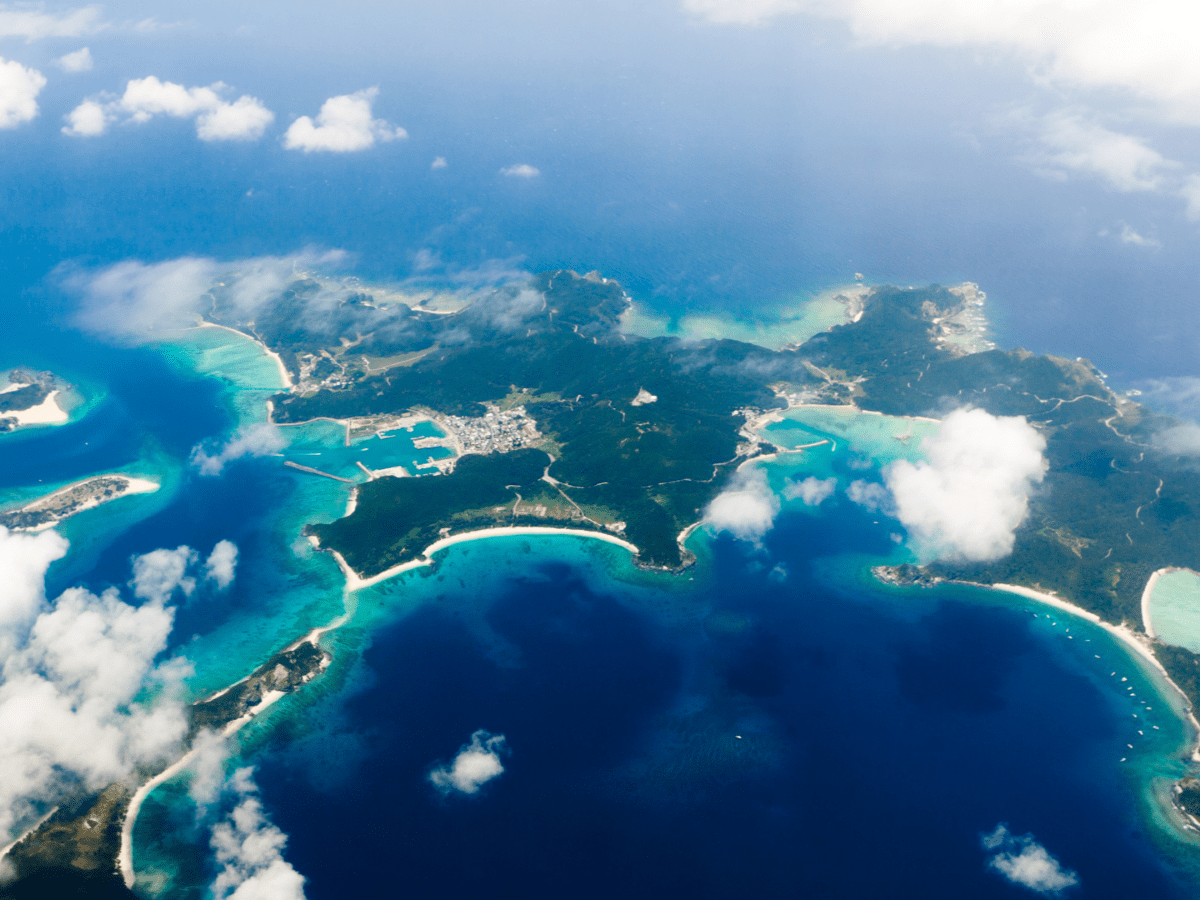December is Learn a Foreign Language Month and we’re celebrating at the Free Library. Many languages are in danger of dying out and estimates show about 3,000 languages becoming lost before the end of the century. To help prevent this and encourage endangered language learning, the United Nations launched the International Decade of Indigenous Languages in 2022.
The Ryukyu archipelago, or Okinawa, is officially part of the island nation of Japan, and a world-famous vacation destination. With its distinct topography, history, and culture, it differs from mainland Japan in one interesting way — its indigenous Okinawan languages, most broadly referred to as Uchinaaguchi (or the tongue of the Uchinaa-Okinawan people). I was extremely fortunate to have the opportunity and privilege of teaching English for one year at the second-largest public high school on the main island of Okinawa in the 2007–2008 academic year. In my time there, I only heard Uchinaaguchi spoken once.
The Okinawan languages, segmented by UNESCO into Central and Northern types, are officially recognized as being severely and definitely endangered. Okinawa has been incorporated into the nation of Japan with varying levels of acculturation, but the Okinawan people remain fiercely proud of their separate traditions. If one visits most of Okinawa, even the outer islands, you will almost always encounter people speaking Japanese.
In Okinawa, children learn standard Japanese in schools, though they speak Japanese with a variety of Okinawan words present in their speech and accent in a dialect called hogen. Some words will seemingly always survive in Okinawa, with a few examples being mensoore (men-so-ray) or “Welcome!” and kame (ka-may) or “Eat!”. Anyone with an interest in the many islands that are part of the former Kingdom of the Ryukyus could benefit from perusing some of the many resources about studying the Okinawan languages.
While Japanese and Uchinaaguchi have similarities, during my time as a teacher in Okinawa, I couldn’t understand what was being said when Uchinaaguchi was spoken. I once attended a school function where an older teacher who was retiring chose to address his colleagues in Uchinaaguchi. You could have heard a pin drop! I could sense that this was an important moment and, through my coworkers, I could pick up that his passionate speech was about preserving Okinawan culture through continuing to speak and use Uchinaaguchi. I had goosebumps as I listened as intently as I could, with my Japanese ability helping me some.
Please learn Okinawa and the Uchinaaguchi language! Learning about endangered languages can help to keep them alive. When a language disappears, often its culture and community disappear as well. If you want to learn more about why preserving endangered languages is crucial, here’s more information from Berlitz and Babbel.
Some recommended resources for learning more about and studying the Okinawan languages include:
- Aloha Uchinaaguchi
- Peace for Okinawa: How to Learn the Okinawan Language
- Uchinaguchi Study Group on YouTube
- 10 Okinawan (Uchinaaguchi) Phrases to Learn
- Rikka, Uchinaa-nkai!: Okinawan Language Textbook for Beginners
Kimberly Mitchell is the Adult Education Specialist for the Free Library’s Languages and Learning department.
Have a question for Free Library staff? Please submit it to our Ask a Librarian page and receive a response within two business days.

